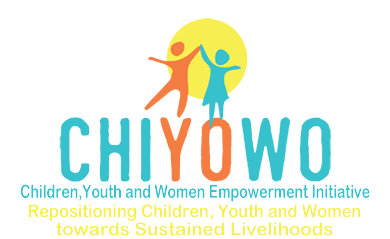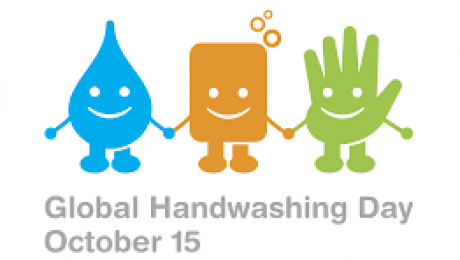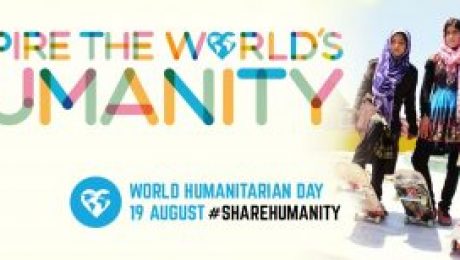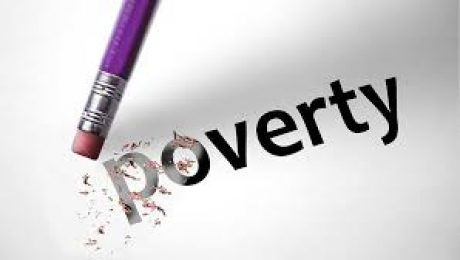International Men’s Day
International Men’s Day
By ChiYoWo
On February 7, 1992 International Men’s Day was first created. It is now celebrated annually on November 19th in over 60 countries. The objective of International Men’s Day is to focus on men’s and boy’s health, improving gender relations, promoting gender equality, and highlighting positive role models. It is a day for men to celebrate all of their achievements and their contributions to their families, communities, marriages, and children. It is also a day to focus on men’s wellbeing socially, emotionally, physically, and spiritually.
The theme for this year’s International Men’s Day is STOP MALE SUICIDE. Sadly, the suicide rate for men is three times higher than women in every country. Annually, there are some 475,000 deaths from murder, of which 80% are male. On top of high suicide rate, data shows that men are overall unhealthier than women in almost every part of the world due to numerous factors. Some of these factors being, the majority of smokers are male, men are also more likely to drink and do illegal drugs than women, they overall have a poorer diet and are faced with more occupational health hazards than woman. Globally, men’s life expectancy rate has dropped down from 69 years to 58.3 years.
Now is the time to bring attention to the issues the men in our world are facing! We need to show we are there for them and care for them as they care for us.
There have been and are many methods of commemorating International Men’s Day such as public seminars, conferences, festivals and fundraisers, classroom activities at schools, radio and television programs, religious observances, and peaceful displays and marches. You can participate in observing International Men’s Day by telling those special men in your life how much they mean to you! Let’s celebrate men and all that they do for the family, friends, jobs, communities and their nations!
[1.] Mens Day – http://www.mensday.ws/en/about.php [2.] BCMJ – http://www.bcmj.org/articles/silent-epidemic-male-suicide [3.] Wikipedia – https://en.wikipedia.org/wiki/International_Men%27s_Day [4.] Mens Health Week – http://www.menshealthweek.org.au [5.] International Mens Day – http://www.internationalmensday.com/
- Published in BLOG
International Day for the Elimination of Violence Against Women
International Day for the Elimination of Violence Against Women
By ChiYoWo
International Day for the Elimination of Violence Against Women was designated to November 25th by the United Nations General Assembly. This date was chosen in remembrance of the assassination of three sisters Maria, Teresa, and Minerva Mirabel. The Mirabel sisters were activists from the Dominican Republic who were opposed to the dictatorship of Rafael Trujillo and were involved in clandestine activities against his regime. Because they were protesting against Trujillo, he ordered for them to be assassinated.
Today, the premise of the International Day for the Elimination of Violence Against Women is to raise awareness to the fact that women all around the world are subject to rape, domestic violence as well as other forms of violence.
Quick Facts
- 1 in 3 women experience physical or sexual violence-mostly by an intimate partner.
- Women who have been physically or sexually abused by their partners are more than twice as likely to have an abortion, almost twice as likely to experience depression, and in some regions, 1.5 times more likely to acquire HIV, as compared to women who have not experienced partner violence.
- It is estimated that of all women who were the victims of homicide globally in 2012, almost half were killed by intimate partners or family members, compared to less than six per cent of men killed in the same year.
- Around 120 million girls worldwide (slightly more than 1 in 10) have experienced forced intercourse or other forced sexual acts at some point in their lives. By far the most common perpetrators of sexual violence against girls are current or former husbands, partners or boyfriends.
Many women’s organizations have pulled together to increase awareness and gather support. It is time for us to join in and end violence against women together.
Please, help us celebrate and take action by participating in International Day for the Elimination of Violence Against Women. The 25th of November is known as “Orange Day’ so be sure to wear something orange!
Sources
[1.] UN Women – http://www.unwomen.org [2.] History – http://www.history.com
- Published in BLOG
World Food Day: Food a Basic Human Right?
World Food Day: Food a Basic Human Right?
By ChiYoWo
Hunger. What do you picture when you think of hunger? Do you think about how you have not eaten in four hours and you really need a snack? Or do you think about the over 805 million people (that is 1 in every 9 people) who live in chronic hunger? Food is a basic human right, yet many people around the world do not have access to safe and nutritious dietary food needed to lead productive lives.
Hunger Facts:
- Sub-Sharan Africa has the highest prevalence of hunger as 1 in 4 people are undernourished,
- Poor nutrition causes nearly half (45 percent) of deaths in children under five. That is 3.1 million children each year,
- 1 out of 6 children (roughly 100 million) in developing countries is underweight,
- Over 70 percent of food insecure people live in rural areas of Africa, Asia, Latin America and the Near East. Many of them are small hold family farmers.
Now, wait a minute. Did that last statistic say that family farmers are food insecure? Yes. Most farmers are able to produce enough food to feed others around them, but not for themselves. Most often, they lack adequate storage for their crops, transportation, access to good seeds, well-functioning markets, and financing.
Did you know that if women farmers had the same access to resources as male farmers do, the number of hungry people could be reduced by up to 150 million! What an accomplishment that would be!
So, participate in World Food Day with us! World Food day is celebrated on the 16th of October every year in in honor of the date that the Food and Agriculture Organization was founded. This is take action day is for everyone to come together and make a commitment to eradicate hunger. Join us on this journey of stopping world hunger!
Sources:
World Food Day USA – http://www.worldfooddayusa.org/what-is-wfd
All Africa – http://allafrica.com
World Food Programme – https://www.wfp.org/hunger/stats
- Published in BLOG
International Day of the Girl Child
International Day of the Girl Child
The event which focuses on the theme ““Girls’ Progress = Goals’ Progress: A Global Girl Data Movement”.
Why International Day of the Girl Child?
October 11, 2012 was the first day the girl child was recognized. International Day of the Girl Child is an international observance day declared by the United Nations; it is also called the Day of the Girl and the International Day of the Girl (IDG). The observation supports more opportunities for girls and increases awareness of gender inequality faced by girls worldwide based upon their gender. This inequality includes areas such as right and access to education, nutrition, legal rights, medical care, and the protection from discrimination, violence against women and child marriage.
Objective of IDG 2016
- Enhance national capacity and systems to collect, analyze and disseminate gender data across the age spectrum to improve statistics on gender-based violence, adolescent pregnancy and reproductive health, informal employment, entrepreneurship, unpaid work, and other priorities for girls and young women.
- Disaggregate data on boys and girls and along other dimensions (e.g., ethnicity, age, income-level, disability, location, migration status, etc.) to better understand exactly which children and adolescents are most disadvantaged and where.
- Improve data collection efforts for often undercounted groups – such as data on sexual violence against younger adolescent girls (10-14).
- Harness “big data” and technology to close the gender data gaps in areas where progress for girls is often difficult to measure due to issue sensitivity or the huge data volume required, including through analysis of girls’ opinions on key development issues on social media.
- Remedy the gender bias in existing measurement tools, particularly biases that exclude the most vulnerable. For example, improved data collection tools can prevent under-reporting of violence against girls and under counting of their births and deaths.
- Pilot and scale-up innovative real-time data platforms to monitor and adapt programming for girls, to ensure girls are active participants in program design and that programs achieve the most impactful results.
- Published in BLOG
United Nations Day
United Nations Day
By ChiYoWo
The United Nations is an international organization that was created to give countries the opportunity to meet together and discuss important world issues. These issues include international conflicts, world peace, and social justice for humanity. The United Nations encourage resolutions without war, and form policies on international issues.
Aims:
The United Nations has four main purposes. These purposes are:
- Maintaining worldwide peace and security,
- Developing relations among nations,
- Fostering cooperation between nations in order to solve economic, social, cultural, or humanitarian international problems, and
- Providing a forum for bringing countries together to meet the UN’s purposes and goals.
History of United Nations Day
Shortly after World War II ended, representatives from 51 countries got together and drew up the United Nations Charter. On October 24, 1945 the United Nations officially came into existence. The Charter was sanctioned by China, France, Soviet Union, United Kingdom, United States of America, and many more countries and has been celebrated every year.
United Nations Day is committed to letting people all over the globe know the goals and achievements of the United Nations Organization. This year’s United Nations Day theme was, “concrete actions people can take to help achieve The Sustainable Development Goals”
According to UN Secretary –General Ban Ki-moon, “Humanity has entered the era of sustainability – with a global commitment to fulfil the great promise of the 2030 Agenda for Sustainable Development. In this, the Organization’s 71st year, we have 17 goals to propel us towards a better future for all on a healthy planet.”
Therefore, to achieve sustainable development the following practical goals have been identified:
- Donate what you don’t use
- Avoid throwing away food
- Vaccinate your family
- Avoid wasting water
- Think of innovative ways to re-purpose old material
- Recycle paper, plastic, glass, and aluminum
- Avoid using plastic bags to keep the oceans safe and clean
Sources:
[1.] United Nations – http://www.un.org/en/events/unday/ – http://www.un.org/en/sections/history/history-united-nations/ – http://www.un.org/en/events/unday/posters.shtml [2.] Study – http://study.com
- Published in ARTICLES
Global Handwashing Day – October 15th
Global Handwashing Day- October 15th
By ChiYoWo
It is extremely important to teach our children how to properly wash their hands. According to Globalhandwashing.org every year, 1.7 billion children do not live to celebrate their 5th birthday because of diarrhea and pneumonia. Three quarters of these children are located in Sub-Saharan Africa and South Asia. The most effective way to prevent these diseases is to use soap when washing your hands.
Global Handwashing Day was created to promote hand washing with soap throughout the world and to raise awareness about the benefits of washing your hands. We must teach our children how to wash their hands the right way, and when they should be washing their hands.
How to properly wash your hands:
·Wet your hands with clean running water (either warm or cold).
·Apply soap (This can be liquid, bar or powder soap).
·Lather by rubbing your hands together and scrub vigorously for 20 seconds.
·Rinse hands really well.
·Dry your hands with either a clean or disposable towel or air dryer.
When to wash your hands:
· Before handling food
·Before treating wounds, giving medicine, or caring for someone who is sick
·After using the bathroom
·After you touch animals
·After you sneeze, cough, or touch your face
·After preparing food, especially raw meats
·After you get done being/playing outside
Celebrate Global handwashing Day with us every year on October 15th and help us raise awareness to the importance of washing our hands for the safety of ourselves and others. Using soap while washing your hands is not only an easy and effective way to prevent diseases, but it is also affordable.
[1.] Globalhandwashing.org – http://globalhandwashing.org/[2.] CDC – https://www.cdc.gov/features/globalhandwashing/
[3.] Mayo Clinic – http://www.mayoclinic.org/
- Published in BLOG
World Humanitarian Day on August 19 Celebrates “One Humanity”
World Humanitarian Day on August 19 Celebrates “One Humanity”
Tokunbo Ifaturoti
On August 19, 2016 the international day observances shift to focus on the humanitarian that resides in us all. Under the theme “One Humanity”. Events on that day will pay direct homage to humanitarian aid workers and the over 130 million persons worldwide who depend on their selfless assistance.
It is vital that we acknowledge these efforts and support all plans to increase the reach and effectiveness of humanitarian aid workers. What should also be at the forefront of our thoughts is how we can contribute to make a difference. Being a humanitarian is defined as “having concern for or helping to improve the welfare and happiness of people”. That concern should drive us to
- learn more about the hardships and struggles of people displaced by war and strife
- use all means available to us to spread awareness of their plight
- encourage and instigate change how, when and wherever we can
Another way in which we can allow the humanitarian in us to shine through, is to give our support in time, skills and financial assistance to charities and organizations that are working to improve the conditions of those in need. These entities work to empower the disadvantage, enabling them to make positive changes in their personal lives and in their societies.
When each individual takes these actions in the spirit of humanitarianism then we are affecting changes to the happiness, health and safety of our fellow human beings. We are acting as “One Humanity”.
“In a world that is ever more digitally connected, each of us has the power and responsibility to inspire our fellow human beings to act to help others and create a more humane world.” — UN Secretary-General, Ban Ki-moon
- Published in BLOG
Poverty Reduction – It’s Not All About Money
Poverty Reduction – It’s Not All About Money
Tokunbo Ifaturoti
Introduction
The United Nations’ Transforming our world: the 2030 Agenda for Sustainable Development, otherwise known as the Sustainable Development Goals or SDGs have as its first goal “No poverty” with an attendant target to “end poverty in all its forms everywhere”. The essential idea in that target is poverty comes in many forms.
Defining Poverty
Investopedia offers the following definition: “Poverty is a state or condition in which a person or community lacks the financial resources and essentials to enjoy a minimum standard of life and well-being that’s considered acceptable in society.” This powerful definition brings a few important points into focus.
- Poverty affects individuals and groups of individuals.
- Poverty is about more than a lack of money (but what are the “essentials” to which the definition alludes?)
- Use of the term “enjoy’ in relation to having at least what is considered the minimum standard of living suggests that where there is poverty, instead of “joy” we will find the opposite – “misery”.
- Poverty is unacceptable.
The Essentials
Money or “financial resources” aside, what other lacking factors should we consider when discussing poverty? According to the United Nations, poverty also involves several social, political and cultural aspects. It encompasses
- a lack of “access to health care and education”
- infringement upon the “freedom of thought, expression and association”
- prevention of “the right to maintain one’s cultural identity and be involved in a community’s cultural life”
The World Bank highlights that over three-quarters (77.8%) of persons below the poverty line live in South Asia and Sub-Saharan Africa. The Bank goes on to list the “essentials” that these persons are having difficulty accessing as “schools, healthcare, electricity, safe water and other critical services”.
Reducing Poverty In All Its Forms: Self-Reliance
In order to eradicate poverty in all its forms, the world’s poor must be empowered through self-reliance to rise above the threshold of financial poverty. This can be done by implementing entrepreneurship initiatives that allow individuals and communities to earn an acceptable income out of the skills and resources they already have.
All persons within poverty stricken communities must be able to freely access educational facilities which provide even the most fundamental levels of literacy and numeracy. Where there are no such institutions, these need to be built and persons trained to work in them. Ideally, over time, these persons will be drawn from within the community – an example of community self-reliance.
Provision of clean water
Self-reliance in accessing clean water is also vitally important. There are many charities that focus on bringing in drinking water to disadvantaged communities. While this assistance is absolutely needed in the short-term, it is not a solution for the long-term. Communities need to be exposed to practical innovations in harvesting fresh water, such as by the drilling and maintenance of wells.
Conclusion
Attainment of the SDGs hinges on finding ways to address the issues that lead to poverty in the first place and then later pose as obstacles to persons retaining their new found status above the poverty line. Providing assistance now that is geared to helping the poor eventually taking on the responsibility of improving their own well-being is the key to eradication of poverty around the globe.
- Published in ARTICLES
International Day For The Remembrance Of The Slave Trade And Its Abolition 2016
Make It A Day To Remember
International Day For The Remembrance Of The Slave Trade And Its Abolition 2016
Tokunbo Ifaturoti
August 23 is the day set aside by the United Nations for us to focus on the lasting effects of the slave trade, the struggles that led to its abolition and what these mean to us as we try to improve conditions for all around the globe. Irina Bokova, UNESCO Director-General, puts it all into perspective when she states “All of humanity is part of this story, in its transgressions and good deeds.”
The establishment of the International Day for the Remembrance of the Slave Trade and its Abolition comes out of UNESCO’s The Slave Route Project. That initiative is also responsible for the setting up of the International Decade for People of African Descent (2015-2024).
Human nature is laid bare for open examination as we dissect the horrendous trade and the unstoppable movement to fight against it and bring about its downfall. That fight was not swift, but a centuries-long struggle running from the abolition of slavery in a handful of American states in the late eighteenth century to the 2003 banning of slavery in Niger.
Within Nigeria, many internally displaced persons (IDPs) have fled their homes out of fear of modern day slavery at the hands of insurgents. Also, Badagry in Nigeria’s Lagos State was a primary town for the export of slaves to the Americas. Whether past or present, slavery and its nuances have left an indelible imprint that tempers how societies and sectors within societies relate to each other.
It is important that the achievements of groups which were (or still are) physically, mentally and emotionally oppressed be highlighted as a way to restore a sense dignity and equality to them. In doing so we will be guaranteeing that they are able to freely continue to make worthwhile contributions to the growth of whichever countries they are in. In the case of Nigeria’s IDPs, it is worthwhile to focus on their strengths and empower them to become independent as a way to maintain their freedom.
Let us not forget the scourge of slavery but also, most importantly, let us collectively decide to focus on the powerful human traits that have led to its abolition. These are the traits that will drive the development of societies that respect and nurture all their citizens regardless their ethnic background, gender, age, or socio-economic status.
- Published in BLOG
International Day Against Nuclear Tests – August 29, 2016
International Day Against Nuclear Tests – August 29, 2016
Tokunbo Ifaturoti
The International Day Against Nuclear Tests has been observed since 2010 with the hope of drawing attention to the need to finally bring the Comprehensive Nuclear-Test-Ban Treaty (CTBT) into force.
The first successful test of a nuclear bomb, code named Trinity, was carried out at Alamogordo, New Mexico on July 16, 1945. Most of the world’s population had no inkling of its occurrence, but that event set off a chain reaction of events. Those events have included close to 2000 nuclear tests, growing awareness about their starkly negative effects and the adoption of the International Day Against Nuclear Tests.
The lingering and as yet not fully understood impact of exposure to nuclear radiation and contaminants have provided ample reason for a feeling of wariness about the negative consequences of nuclear tests. The world saw the utter devastation that occurred when the United States detonated two bombs against Japan. Over the ensuing decades, the lasting repercussions of the explosions on the health of people in the affected areas have been brought to our attention time and time again.
There have been several nuclear plant incidents, as well, of which the Chernobyl disaster in the Ukraine and the recent tsunami induced nuclear plant accident in Fukushima, Japan stand out for most people. These coupled with a push by a growing number of nations to develop nuclear weapons as a means of offense and defence, have fuelled a call for the need to put an end to nuclear testing.
In the days around August 29, the member states of the United Nations will highlight the relevance and necessity of the International Day Against Nuclear Tests by hosting various activities aimed at disseminating information about it. Organizations such as the International Physicians for the Prevention of Nuclear War (IPPNW), Greenpeace International and Global Zero, have also joined in the call for greater awareness in the push toward a world without nuclear weapons.
As UN Secretary-General Ban Ki-moon points out, disarmament is important “because the resources it will free up could be used for other global challenges.” These challenges include those faced by poverty and strife stricken regions around the globe. Within these areas many people barely survive below the poverty line and are in need of resources to help jumpstart their journey to being able to provide for themselves and their families.
“On this Day, I call on all countries and peoples to work for the CTBT’s entry into force as soon as possible so that we may advance toward a nuclear-weapon-free world.” — UN Secretary-General, Ban Ki-moon
- Published in ARTICLES





